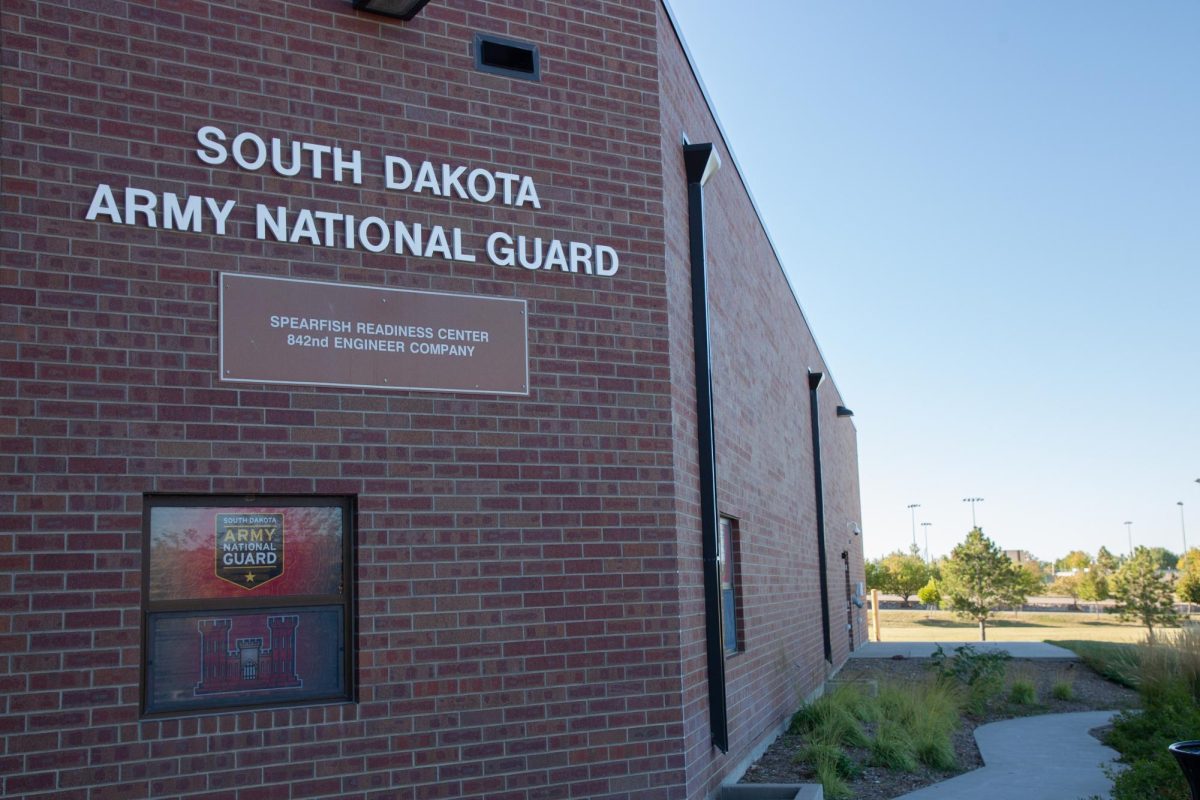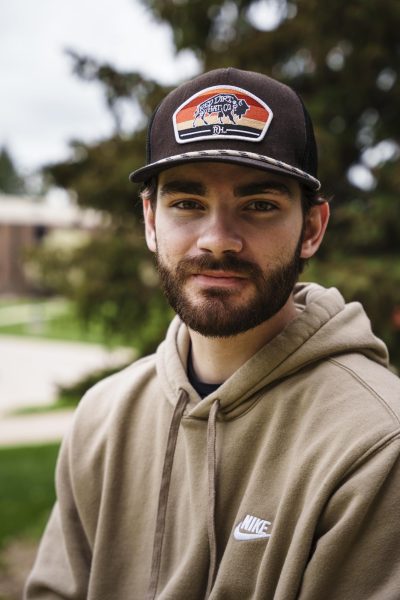Among the thousands of troops deployed across the nation, a detachment of twelve soldiers from the South Dakota National Guard were deployed to Washington, D.C. to assist with public affairs after South Dakota Governor Larry Rhoden made the announcement Aug. 31. Within that detachment, two of those soldiers are current students at BHSU and one is a student at USD.
“When I got the call that I’d have to deploy to [Washington] D.C. I felt this knot in my stomach, and it kind of felt like the world froze,” said Caleb Minor, a photography major at BHSU. “I remember thinking, ‘I’m really going to have to just drop everything and go.’”
Minor is a Staff Sergeant with the 129th Mobile Public Affairs Detachment in the South Dakota National Guard. He has served in the South Dakota National Guard for just over two years, and prior to that served five years as an active-duty soldier in the U.S. Army.
“I was ready to [deploy], but at the same time, it was a really sad feeling,” Minor said. “I’ve kind of established myself in South Dakota, and transitioned more into civilian life than I had in previous years.”
Although Minor understood there was a chance of deployment when he joined the National Guard, he was not expecting to be called into active service at such an important point in his academic career.
“As of now, I’m hoping that I’ll only extend my schooling just one extra semester to make up for the one I missed,” Minor said. “But dropping out means I’m no longer able to participate in extracurricular activities.”
During the previous school year, Minor joined Ponder Magazine as a photographer. His work in the magazine contributed to Ponder’s success in competitions at both the regional and national levels.
Minor was even named a finalist for a Pinnacle Award at the upcoming MediaFest25 convention, which is set to take place in the same city he is deployed.
“It’s very disappointing,” Minor said. “Ponder has been doing really well, and not being able to attend [MediaFest25] as a finalist is just very disappointing.”
The South Dakota detachment is approaching its 60-day deployment mark. However, it’s likely that the deployment could be extended to Nov. 30.
“Coming into this mission, I was worried about [the public’s reaction],” Minor said. “Everything I’d heard on the news was that no one wants the National Guard here. But that’s far from the truth. Most of the people I’ve run into are very supportive. A lot of people feel like the effort the National Guard is putting into this mission has made a difference here in D.C.”
Despite what Minor and his coworkers expected when they were initially en route to D.C., the detachment generally feels it has successfully performed its tasks and maintained a constructive relationship with the public and local law enforcement.
“The soldiers have remained positive and professional,” Minor said. “I will say, out of my time in the military, this is probably the most professional group of soldiers I’ve had the opportunity to work with.”
Although the 129th Mobile Public Affairs Detachment’s mission to document the National Guard’s story is going well for Minor, the lost time on an academic level could potentially prove more detrimental than expected.
“There are federal laws that require an employer to give a person back their job if they have to leave on military orders,” said Major John Lundeen, an Assistant Professor of military science at BHSU, and an engineering officer in the South Dakota National Guard. “But school can be a different animal sometimes because it’s classes, it’s not a job and you’re not getting paid.”
Schools that are associated with the South Dakota Board of Regents (SDBOR) follow a type of schedule that typically allows for any one class to only be available once a year. So if a student misses a required class for the degree they’re pursuing, there’s a chance that student will have to wait a full year until they have another chance to take the class.
“It is frustrating, and it would be great if any schools could do more to accommodate for the classes that are missed,” Lundeen said. “The schools making extra accommodations to let [National Guard soldiers] take extra classes or replacement classes to make up for the time they lost is the only way that could possibly help in my opinion. It’s just a question of if it would be possible.”
Although BHSU has made a point of projecting its accommodation and support of military members, altering class schedules is a difficult task as many classes are already taught online by off-campus or adjunct faculty.
However, on a more positive note for these student-soldiers, this will likely be their one and only deployment while they pursue their undergraduate degrees.
“What [the National Guard] wants is for their soldiers to only be deployed one out of every five years, so if you go on a deployment, you should be safe from deployments for the next four years,” Lundeen said. “But missing classes and prolonging the start of a new career is a sacrifice they’re making, and we’re grateful that they’re doing it.”



